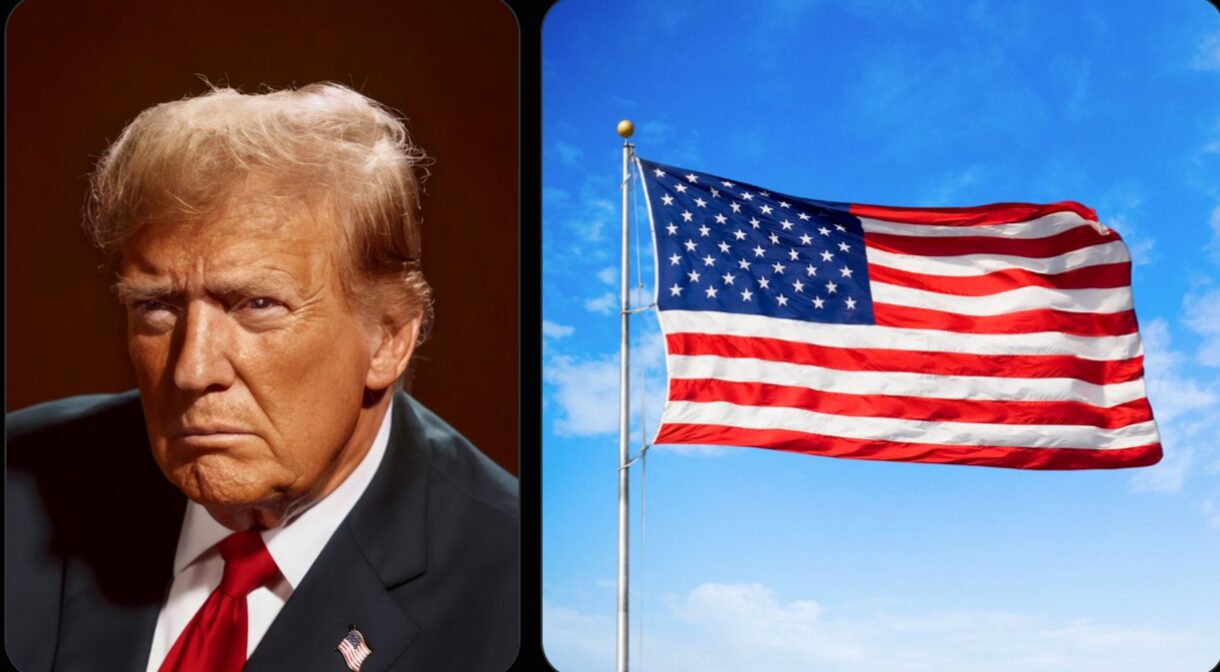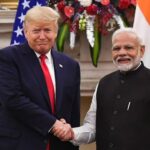TRUMP to create External Revenue Service (ERS) to collect all tariffs, duties & revenue from foreign sources
In a bold and controversial move, former President Donald Trump has announced plans to establish a new federal agency called the External Revenue Service (ERS). This agency would be responsible for collecting all tariffs, duties, and other forms of revenue generated from foreign sources. The creation of the ERS marks a significant shift in U.S. tax and trade policy, as Trump seeks to restructure how the country handles international trade revenues and reduce its reliance on traditional domestic tax collections. The announcement has sparked a wave of debate among political and economic analysts, with many questioning the potential implications of such a move on the U.S. economy, foreign relations, and the broader global trade system.
Trump’s proposal for the ERS underscores his ongoing commitment to his “America First” agenda, which prioritizes U.S. interests in international dealings and seeks to minimize the financial burden on American taxpayers. By setting up a new agency dedicated to managing foreign revenue, Trump aims to streamline the collection of funds from tariffs, duties, and other forms of trade revenue, while also ensuring that the U.S. government has a more direct and efficient way of tapping into the growing global economy.
The Need for an External Revenue Service: Trump’s Rationale
In explaining the rationale behind the creation of the ERS, Trump emphasized the growing importance of international trade in the U.S. economy. Under his administration, tariffs and trade duties were central components of his economic strategy, especially in dealings with China and other countries accused of unfair trade practices. Trump argued that the U.S. has been undercharging foreign entities and has failed to collect sufficient revenue from international trade. The creation of the ERS, according to Trump, would help address this imbalance and ensure that foreign nations pay their fair share to the U.S. government.
In particular, Trump believes that the ERS would help streamline the collection of tariffs imposed on imports, which have been a significant part of his trade policy. By centralizing these duties under one agency, the ERS could improve efficiency and accountability, as well as reduce bureaucratic inefficiencies that have plagued U.S. trade revenue collection in the past. The new agency would also be responsible for overseeing other sources of foreign revenue, including duties on foreign goods entering the U.S. market and any penalties or fees levied on foreign entities involved in trade disputes.
What the External Revenue Service Would Do
The External Revenue Service (ERS) would function similarly to the Internal Revenue Service (IRS), but with a focus on international revenue. The agency would take over the collection of tariffs, duties, and other fees imposed on foreign goods and services entering the United States. It would work to streamline the trade process, ensuring that all foreign trade transactions are accurately taxed and that the U.S. receives its rightful share of revenue from global trade.
One of the primary responsibilities of the ERS would be to manage and enforce tariffs. During Trump’s first term, tariffs were used as a tool to exert economic pressure on countries like China, with the aim of addressing trade imbalances and promoting fairer trade agreements. By consolidating the power to collect these duties within a single agency, Trump hopes to improve the effectiveness of U.S. trade policy and prevent foreign companies from circumventing tariffs or taking advantage of loopholes.
The ERS would also be tasked with monitoring and auditing foreign sources of revenue, ensuring that payments for trade-related activities are made accurately and on time. This could include overseeing payments related to foreign investment in U.S. markets, taxes on overseas earnings by U.S. companies, and other financial transactions that involve foreign entities. In essence, the ERS would centralize the government’s efforts to collect international revenue, improving transparency and reducing the complexity of trade-related tax collection.
Potential Benefits of the ERS
Trump and his supporters argue that the ERS would bring several key benefits to the U.S. economy, including:
- Increased Revenue Collection: By consolidating tariffs and duties under one agency, the ERS could ensure that all foreign revenues are accurately tracked and collected. This would help boost U.S. revenue from international trade and ensure that foreign entities are paying their fair share of taxes.
- Streamlined Trade Policy: With a dedicated agency overseeing foreign revenue collection, the U.S. government could implement trade policies more effectively and ensure that tariffs and duties are properly enforced. This could lead to more efficient trade negotiations and a stronger position for the U.S. in global trade talks.
- Enhanced Accountability: By centralizing the collection of foreign revenue, the ERS could help reduce bureaucratic inefficiencies and improve the transparency of international financial transactions. This could foster greater trust in the U.S. trade system and reduce opportunities for corruption or mismanagement.
- Job Creation and Economic Growth: The creation of the ERS could lead to job growth in the public sector, as the agency would need to hire staff to manage the expanded duties. Additionally, the increased focus on international trade revenue could stimulate the U.S. economy by ensuring that more funds are available for government programs and investments.
Challenges and Criticisms of the ERS
While the proposed ERS has its supporters, it also faces significant challenges and criticisms from both domestic and international sources. Some of the key concerns include:
- International Trade Relations: One of the primary criticisms of the ERS proposal is its potential to strain U.S. relations with other countries. The collection of tariffs and duties by a dedicated agency could be perceived as a sign of increased protectionism, which could lead to retaliatory measures from trading partners. This could damage the global trade system and result in higher costs for American consumers, especially if other countries decide to impose tariffs or restrictions on U.S. goods in retaliation.
- Bureaucratic Expansion: Critics argue that the creation of a new federal agency would add unnecessary bureaucracy to the U.S. government. With the IRS already handling the collection of domestic taxes, some believe that adding another agency focused on foreign revenue could lead to inefficiencies and duplication of efforts. The potential for increased government spending to establish and maintain the ERS could also be a point of contention.
- Legal and Constitutional Issues: The creation of the ERS could raise legal and constitutional questions, particularly regarding the authority of the U.S. government to unilaterally impose and enforce tariffs on foreign goods. Some critics argue that the expansion of executive power in this area could undermine the checks and balances of the U.S. political system, particularly if the ERS is given broad powers to collect revenue without sufficient oversight from Congress.
- Impact on Global Trade: A major concern for global trade advocates is that the establishment of the ERS could further isolate the U.S. from international markets. The move could be seen as a step back from free trade principles, leading to increased protectionism and trade barriers that harm the global economy. Such actions could have long-term consequences for U.S. companies that rely on international markets for growth and profitability.
What’s Next for the ERS Proposal?
The proposal to create the External Revenue Service is still in its early stages, and much remains to be seen in terms of how it will be implemented and received by both the public and international community. While Trump has expressed confidence that the ERS will be a valuable addition to the U.S. government, it remains to be seen whether the proposal will gain traction in Congress or face significant opposition from lawmakers.
As the debate over the ERS unfolds, it will be important to closely monitor its potential impact on U.S. trade policy, domestic revenue generation, and international relations. If successful, the ERS could fundamentally reshape how the U.S. collects and manages foreign revenue, but it could also raise significant challenges that require careful consideration and negotiation.
Ultimately, the creation of the External Revenue Service highlights Trump’s ongoing commitment to reshaping the U.S. government’s approach to international trade and financial management. As the country navigates its place in the global economy, the ERS could serve as a pivotal element in the next chapter of U.S. trade policy.

















Post Comment